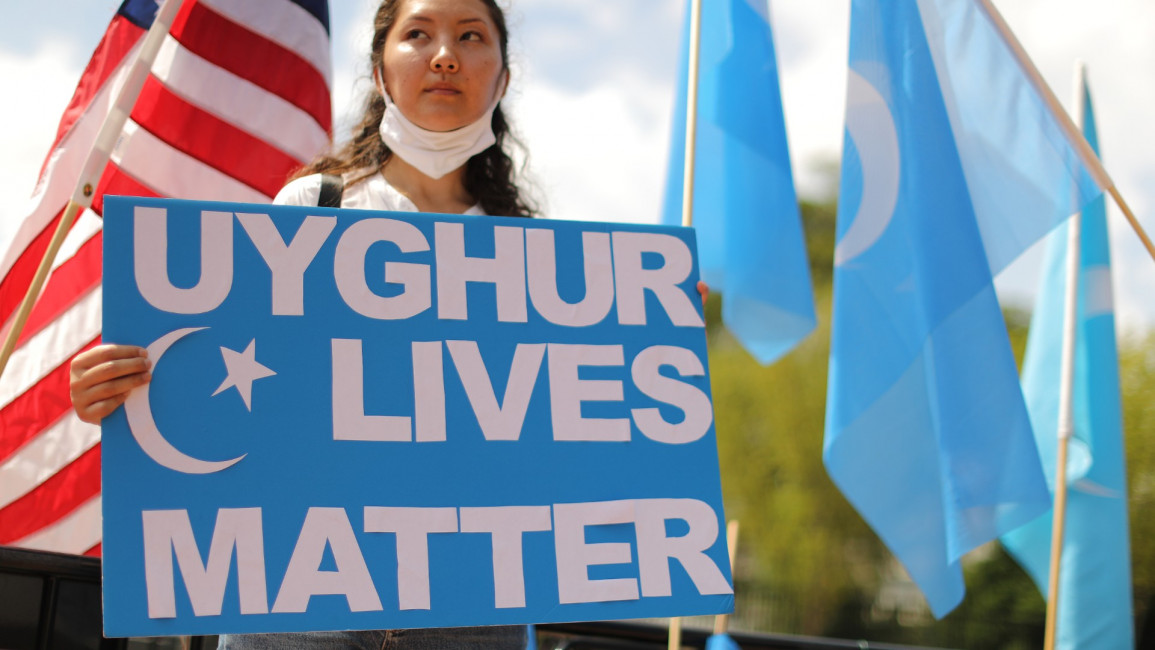Follow us on Facebook, Twitter and Instagram to stay connected
US moves to block cotton, tomato imports from Xinjiang over Uighur forced labour concerns
The United States is moving to block imports of cotton and tomato products from China’s Xinjiang region over the country’s abysmal treatment of its Uighur Muslim population.
Human rights groups have accused China of putting more than one million people into forced labour camps.
US Customs and Border Protection (CBP) officials have prepared Withhold and Release Orders to prevent such produce coming into America from the western region of China and are waiting on President Donald Trump’s administration to officially announce the new measures.
The announcement is expected to be made this week.
Multiple human rights groups including Human Rights Watch and Amnesty International have provided a growing body of evidence which shows that at least one million minority Uighur Muslims are being forced to work in labour camps across Xinjiang.
China has denied the existence of such camps, calling them “re-education centres” to combat extremism.
A foreign ministry spokesperson in Beijing told Reuters that the orders have nothing to do with human rights – he argues the US is simply targeting Chinese firms.
"I think the US cares nothing about human rights," Zhao Lijian said in response to a query.
"It is only using this as a pretext to oppress Chinese companies, destabilise Xinjiang and slander China’s Xinjiang policy," he told a daily news briefing.
CBP official Brenda Smith told Reuters the import bans cover the entire supply chains for cotton, tomatoes, and tomato-derivatives.
"We have reasonable, but not conclusive, evidence that there is a risk of forced labour in supply chains related to cotton textiles and tomatoes coming out of Xinjiang," Smith, an executive assistant commissioner, said.
|
"We will continue to work our investigations to fill in those gaps."
In a draft announcement seen by Reuters, the CBP said it had found several forced-labour indicators "including debt bondage, unfree movement, isolation, intimidation and threats, withholding of wages, and abusive working and living conditions."
The impact of such a ban is likely to be "limited". China imports two million tonnes of cotton and cotton yarn, and Xinjiang exports some five million.
"If Xinjiang cotton goes to the domestic industry and non-Western markets, the impact may be limited, it can probably still be digested," a Beijing-based cotton trader said.
Earlier this year the US sanctioned four top Chinese officials operating in Xinjiang, freezing their American assets and banning them from entering the country using the Global Magnitsky Human Rights Accountability Act.
Xinjiang Party Secretary and Politburo member Chen Quanguo, who Human Rights Watch describes as "a mastermind behind the mass arbitrary detention, torture, and surveillance of millions of Turkic Muslims", was one of the people sanctioned.
First-hand accounts from Uighurs who have faced China’s crackdown on its Muslims, either in the camps or working for the Chinese government, add to damning evidence against China.
An unnamed Uighur doctor who once worked for the Chinese government claims she knowingly took the lives of Uighur babies as part of a disturbing strategy for population control.
The doctor revealed to ITV that she took part in "at least 500 to 600 operations on Uighur women including forced contraception, forced abortion, forced sterilisation, and forced removal of wombs".



